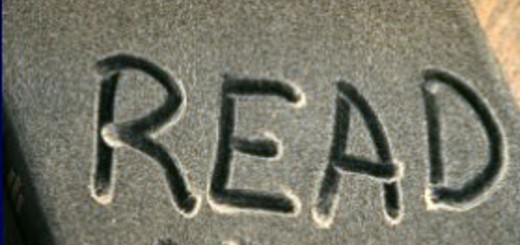The Letter to the Hebrews: Believe in Better 1
The SKY ad mentioned in this extract from my essay below and featured image of today’s post has always meant a lot to me. It’s not a current advert any more, but the sentiment has stayed with me. In fact, it was a mantra for my life long before SKY adopted it! The poster made me smile each time I caught sight of it: not because I believe in SKY (have never had it in fact – I’m a Virgin girl myself), but because I passionately believe in better. Positive transformation has always been huge motivator for me in every area of my life – not in a dissatisfied/ ‘you can be better’/ beat you up kind of way, but in a gradual movement/trajectory in aligning every aspect of my life to become more how God always intended every human being to live. And on a more global scale, taking my place as part of God’s plan to reconcile all people and things to Himself.
And so here is the section on ‘better things’ from the essay I wrote about the Letter to the Hebrews.
The Book of Better Things
The first key theme that I want to address is, in the words of a current SKY TV advert, “I believe in better”. The Letter to the Hebrews has been subtitled “The Book of Better Things.” Here is a book of contrasts and superlatives. Indeed, the word ‘better’ appears more times in Hebrews than in all the other books of the New Testament put together.At the time, many Jewish Christians, saturated as they were in their traditional ways of thinking and worshipping, still continued in the observance of the Law, interpreting the Gospel in a Jewish context. To them, Jesus was indeed the fulfilment of the Law, but this did in no way require the abandonment of the Law.
Furthermore, the Hebrew nation had been raised with a firm conviction that they were an exclusive group, favoured by God, and many among these Hebrew Jewish Christians found it hard to accept Gentile Christians unless they became fully Jewish in their practices. This led to great tension between these Judaisers and the Gentile Christians.
Moreover, as the threat of persecution and destruction of the temple increased, legalism became strengthened more than ever. Moreover, as the Christian church began to rival the synagogues in numbers, the Jewish converts were under pressure from their family and friends to reject this heresy and return to the ‘true faith’. The Jewish converts faced the decision to stay with the Rabbinical interpretation of Scriptures or to embrace the new revelation of Jesus Christ, a decision which would affect the history of the whole Christian church.
Given the context, the writer’s principal aim is to convince his readers that the way of Jesus is indeed a better way. The Jewish Christians had a solid training in the Hebrew Scriptures and it is to this intelligent faith that the writer to the Hebrews puts his argument. He explores the significance of Christ within the context of the Hebrew Scriptures that comprise the Old Testament as we know it today. He uses imagery that is familiar to his community. He takes on the task of demonstrating the absolute superiority, supremacy and sufficiency of Jesus as the revealer and mediator of God’s grace.
Jesus is shown to be better than the prophets, better even than Moses and a better priest than any other that had gone before. The writer to the Hebrews speaks of a better rest, a better hope, a better covenant, a better Law, a better reality and a better sacrifice. This is not to say that all that had gone before was bad; it was about replacing the good with something better (for a more detailed exposition, see Appendix Three).
Side note: One thing that has improved in the last eleven years is my writing – I would now no longer put ‘moreover’ twice in the same paragraph for example! And yes, I believe in better still with regards to my writing!
Anyway, we need to see Appendix Three, don’t we?
This section of the essay was all I could include from the extensive research I did on ‘better things’ in the Letter to the Hebrews. It sets the scene well in helping us understand why the writer of this letter felt the need to focus on ‘better things’ in the way that he did. But I want more! And I will give you more in the coming days.
The Jewish Christians had already taken a massive leap in accepting Jesus as the Messiah. That was huge in itself. But many were then finding it hard to leave behind all those traditions that no longer served their faith. They wanted the best of both worlds. They were not ready to burn their bridges, to cut ties with the traditional practices that had become ingrained into their psyches over generations and generations of retelling stories of God’s chosen people.
We may feel we can relate to that in some way – that yes, we believe in Jesus and are happy to be identified as a Christian, but we’re finding it hard to let go of beliefs and rituals and traditions that belong to the person we were before…
I believe in better.












